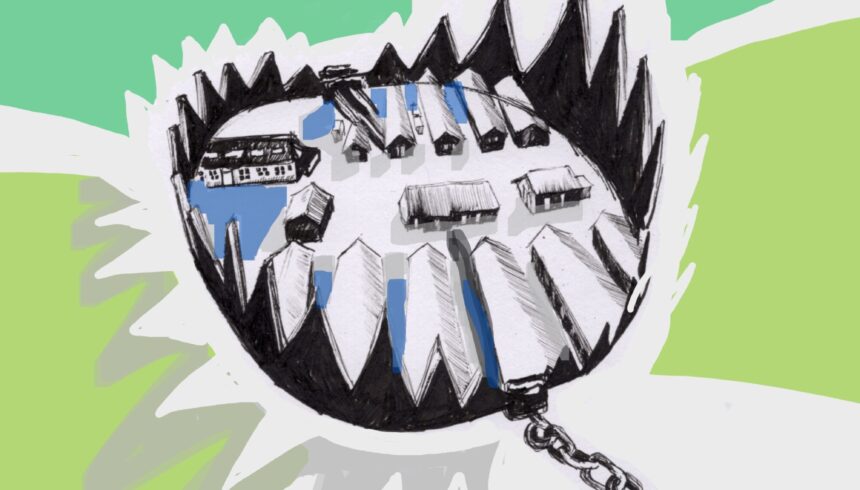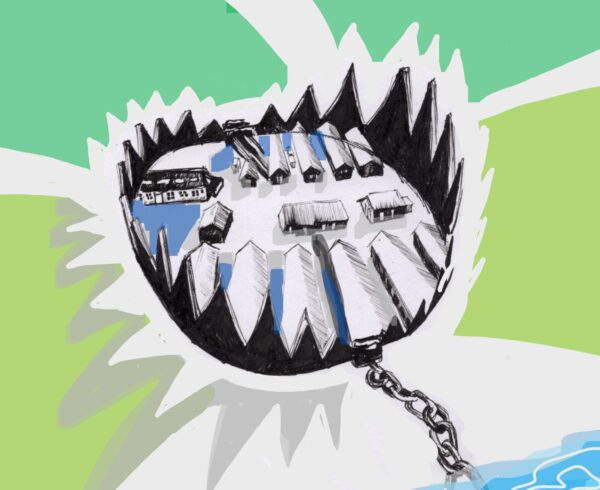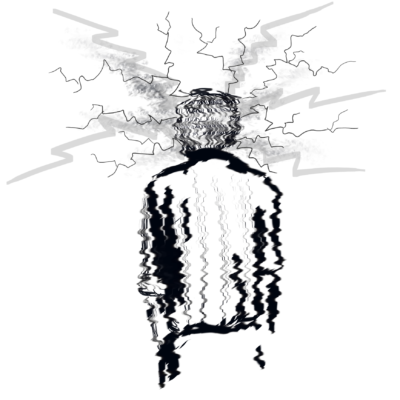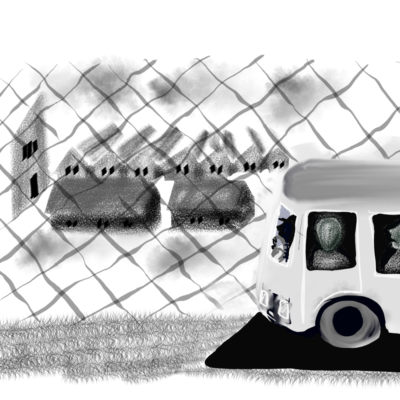Napier Barracks: the inhumane reality
an in-depth report of the experiences of men held in quasi-detention at Napier Barracks
The Jesuit Refugee Service UK (JRS UK)’s report ‘Napier Barracks: the inhumane reality’ shines a light onto the experiences of people placed in the asylum camp at the disused Napier Barracks in Kent.
JRS UK ran an outreach service to Napier for two years from October 2020. What we saw on the ground was deeply troubling: the site was bleak and rundown, the setting was securitised, the accommodation was crowded. This all took a serious toll on mental health. The report draws from the accounts of 17 forcibly displaced people supported by JRS UK held in Napier Barracks between July and November 2022.

KEY FINDINGS

![]](https://www.jrsuk.net/wp-content/themes/jrs/images/quotebracket-right.svg)
- Taken to an unknown place. People were routinely brought to the camp without their prior knowledge, and this caused deep anxiety.
- A daily struggle. Life at the camp was very difficult. The camp was noisy and crowded, and sleeping quarters comprised of large dormitories. Absence of privacy, and connected sleep deprivation, were structuring features of life at Napier. At the same time, Napier felt like a prison to many participants, partly because of its physical setting, and partly because
daily life there is tightly regimented. Many participants were forced to relive trauma at Napier, closely bound up with its physical camp setting, and its military and prison-like features. All of these things together were deeply damaging to people placed at Napier.
- Failing those with vulnerabilities. There were serious failures in screening for vulnerabilities at Napier, and survivors of both trafficking and torture continued to be placed and remain there, in contravention of the government’s own guidelines. Additionally, there are serious inadequacies in welfare support, and individuals face significant barriers to accessing healthcare.
- Lack of legal advice. It was also very difficult, sometimes indeed impossible, to secure legal advice whilst at Napier, and what legal representation was secured was frequently inadequate. This sits in the context of a wider crisis in asylum legal advice, but is made much worse by the fact that hundreds of people seeking asylum have been ghettoised in
a relatively remote location
Javier's Experience

![]](https://www.jrsuk.net/wp-content/themes/jrs/images/quotebracket-right.svg)
Javier fled a central American country when his life was threatened. He travelled to the UK by plane and claimed asylum at the airport. In summer 2022, after months in an asylum hotel, the government moved him to Napier. He was not told he where he was being taken.
“A guy in a taxi turned up. The administrator said you need to pack up your stuff and go…I had 10 minutes to pack up my stuff. I didn’t have time to even ask [anymore about it]…I was going there scared…”
“I was more scared when I got to my room. The room is just a cubicle divided with a sheet and there’s a small bed, perhaps the length of this table.”
Javier suffered from sleep deprivation in the noisy dormitory conditions of the barracks. He took sleeping pills, but still only managed about 4 hours sleep a night. “With sleeping…it’s very difficult.”
Being in Napier forced Javier to relive memories of what happened in his country of origin and forced him to leave his home.
“I had a firearm go off next to my ear, so I’ll wake up feeling scared.” Javier found being in the camp really difficult: “You need to give your room number with the security. There is a games room, they’ll ask for your room number there, they control all of that if you’re leaving for a while, they’ll want to know for how long. It feels as if you’re in a prison.”
Javier was moved out of Napier about a month after participating in this research and is now in dispersal accommodation, a shared house, in another UK town. He is still waiting to hear the outcome of his asylum application. The experience of Napier still haunts him today.
Javier is a pseudonym to protect his identity.
Reccommendations

![]](https://www.jrsuk.net/wp-content/themes/jrs/images/quotebracket-right.svg)
- Napier Barracks must be immediately and permanently closed. Napier Barracks is completely unsuitable as accommodation for people seeking sanctuary. It causes them harm and serves no good purpose, and the problems with it are too fundamental to be solved via tweaking and improvements.
- Plans for greater use of large-scale institutional asylum accommodation centres must be abandoned. This kind of accommodation is damaging to people seeking asylum, denying them both agency and respite, and ghettoising them away from wider communities. It also militates against integration.
- Asylum seekers should be provided with safe and dignified accommodation within British communities. Accommodation within wider communities is better for the mental health of people seeking asylum, and for communities as a whole. It supports integration.

Supporting Statements

![]](https://www.jrsuk.net/wp-content/themes/jrs/images/quotebracket-right.svg)
Samphire
“As a charity involved with supporting Napier Barracks residents from its establishment in September 2020, we fully support the facts laid out in this JRS report. Napier Barracks is a quasi detention environment unfit for people who have fled human rights violations, military regimes and conflicts. People accommodated at the barracks feel watched, lack privacy, and access to legal advice as well as healthcare. Such a cluster environment makes people easy targets for far-right attacks and abuse, as well as creating an “us” and “them” narrative in the community, which works against all integration efforts.”





